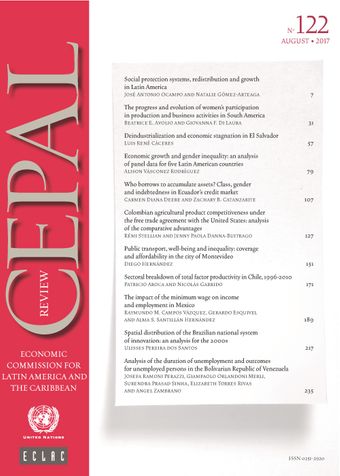-
Who borrows to accumulate assets? Class, gender and indebtedness in Ecuador’s credit market
- Source: CEPAL Review, Volume 2017, Issue 122, Aug 2017, p. 107 - 126
- Spanish
-
- 05 Jan 2018
Abstract
This article examines the propositions that wealth inequality supports credit market segmentation and that the financial system may reproduce economic inequality. Specifically, we discuss how the sources of credit and the purposes of borrowing may help perpetuate inequality. In Ecuador, the asset-poor are more likely than the asset-rich to borrow from the informal sector for expense purposes and to have higher debt-to-net-wealth ratios. We also investigate the correlates of borrowing by men and women to acquire assets and show that the main factor associated with holding asset debt for both men and women is having a formal savings account.
© United Nations





